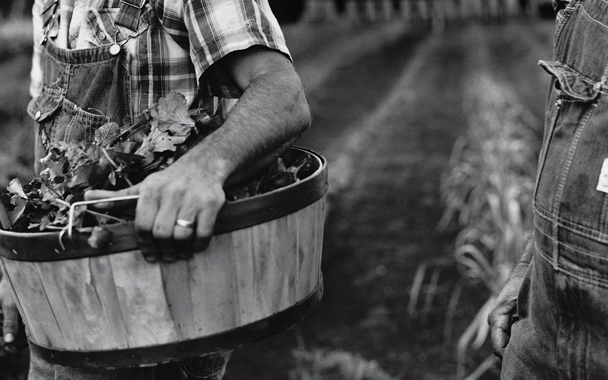Ordering frequent inspections of food-processing facilities. Giving the FDA the authority to issue mandatory recalls of tainted food. Requiring companies to identify potential contamination risks in their operations and to initiate controls.
What’s not to like about the Food Safety Enhancement Act, which was passed by the House Energy and Commerce Committee last week?
Plenty, it turns out, especially if you’re a small farmer—or you like the idea of being able to buy your meat and produce from one.
Although the legislation has been praised by groups such as Consumers Union and the Center for Science in the Public Interest, advocates for family farms have come out strongly against it.
The Davis, CA-based Community Alliance with Family Farms (CAFF) is particularly concerned about provisions that give the FDA power to “promulgate mandatory on-farm food-safety practices for fruits and vegetables”—in other words, dictate exactly how produce is to be grown. “There is a tendency in such regulations to create ‘one-size-fits-all’ metrics that are in fact inappropriate for most farmers who do not grow large tracts of individual crops,” the organization states on its website. CAFF has long contended that food contamination problems are limited to large, industrial-scale processors, not small farmers who sell raw, unprocessed products.
The Farm-to-Consumer Defense Fund, which is dedicated to protecting the right to buy and sell food directly from farms, has also come out loudly against the bill, saying that it “would adversely impact small farms and food producers, without providing significant reforms in the industrial food system.”
Although “farms” are technically exempt from many of the new regulations intended for processing plants, the bill plays fast and loose with the definition of a farm, according to the Defense Fund. For instance, a farmer would no longer be considered a farmer if she sold jam made from fruits produced on her farm. She would become a “facility,” subject to a $1,000 annual fee, and would be required to conduct a full hazard analysis, to maintain detailed records, and to submit to regular FDA inspections. A farmer who made cheese only from his own cows’ milk would still be a farmer. But if he bought milk from a neighbor, he, too, would become a “facility.” An Amish producer who failed for religious reasons to register in an electronic format, as required by the law, would be in violation of the act, and like any violator, subject to fines of $100,000 per day, or up to ten years in jail.
As CAFF puts it, “Family farmers have a lot to fear from the FDA.”
Unless some aspects of this bill are changed before it becomes law, so do the rest of us.




 Pinterest
Pinterest


